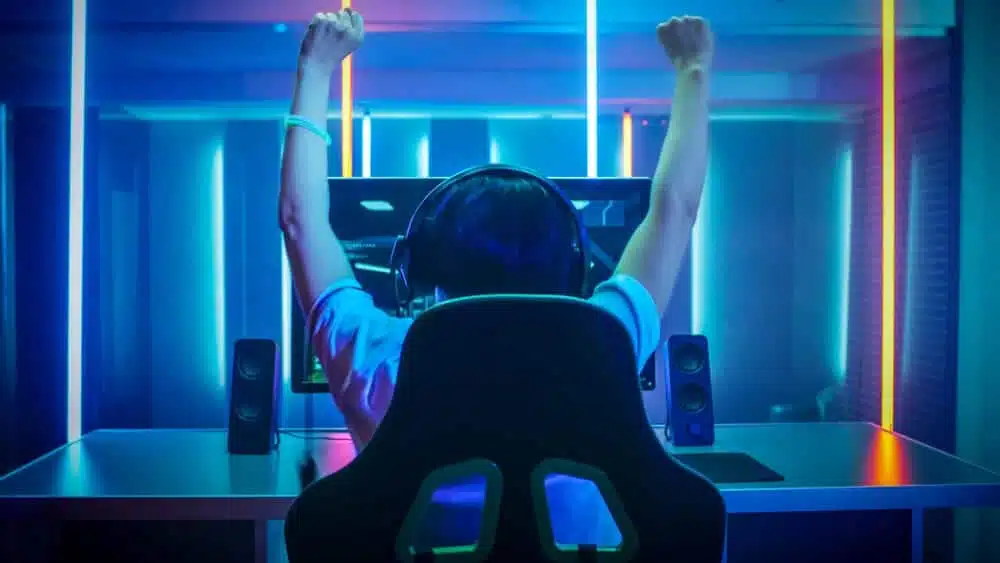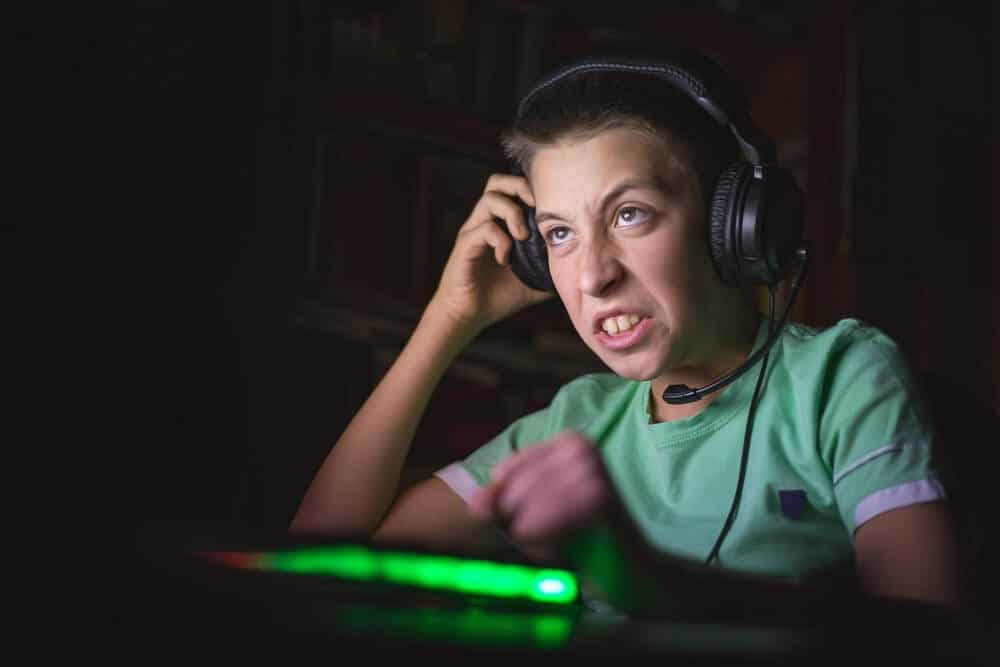
Esports and Video Game Addiction
One of the most insidious intruders in teenagers’ lives is video game addiction. Teens can spend hours and even days glued to the television playing video games on their PlayStation or Xbox. Or, they can spend far too much time on their computers playing MMORPGs with their teams. Either way, video game addiction is an epidemic in this country.
One industry that is proliferating this video game addiction epidemic is the Esports industry. Esports is defined as a form of sport competition with video games as the central battlefield. There are high school and college teams that compete in Esports, as well as individuals who consider themselves professional Esports participants. There are teens who aspire to be Esports pros because of the fame and money that has become a part of the industry.
For parents, this video game addiction epidemic is a serious problem. Their teens are ignoring their education, isolating themselves, and relying on video games to give them a euphoric dopamine “high”.
Video Game Addiction
Gaming has been around for nearly fifty years, but research studies about its possible negative effects have just begun. WebMD provides a list of signs and symptoms to look for in your teen. If he or she has five or more of these signs, he or she is likely to have video game addiction:
- Thinking about gaming all the time
- Feeling bad or sad when he or she can’t play
- Needing to spend more time playing to feel good
- Not being able to quit
- Not wanting to do other things
- Having problems at school or home because of gaming
- Playing despite the problems it causes
- Lying to parents about how much time he or she spends playing
- Using gaming to feel better
But, just because you play a lot doesn’t mean you have a video game addiction. Experts say that there are people who are just enthusiastic about gaming.
Parents who are concerned can start by asking a few questions: Does your teen’s video gaming get in the way of other important things in life, like relationships, a job, or school? Ask your teen if he or she loves to play or needs to play. Does your teen show signs of depression when not playing? It can be difficult to define the problem when you are close to it.
If you’re concerned about the hours your teen spends gaming, check your teen’s grades and explore his or her friend relationships. If his or her only friends are gamers or Esports teammates, it might be time to start examining your teen’s video game behavior.
Esports and Video Game Addiction
The introduction of Esports to the video gaming world increases the possibility that teens can fall to video game addiction. Because Esports seems like a legitimate way to earn a living or use video games productively, teens may see it as a real chance for future gain.
And now that esports are a high school sport, young gamers might be falling in love with the spotlight. They are treated the same as any other high school athlete and can even win scholarships to play on college Esports teams. The hours these teens spend playing video games is considered “training” for competitions where they can win money and be labeled as “pros”.
Large-scale esports tournaments happen all the time online with teen gamers competing from home. “Platforms such as Faceit, Battlefy and World Gaming Network allow users to join matchups as independent players or go in as teams. Although many gamers play just for the thrill, online tournaments frequently award cash prizes.” These prizes are tantalizing to youngsters because they see it as a way to “make bank” while playing games.
They also have the opportunity to become famous as there are live, professional circuits where gamers compete in arenas and other venues that fit hundreds or even thousands of fans. This kind of attention is intoxicating for teens. “Pro games are broadcast on video channels, including YouTube Gaming and Twitch, and are televised on channels including ESPN and DisneyXD.”
Teens also know that professional esports players can be sponsored by video game companies and manufacturers, and the players compete for multimillion-dollar prizes. This is another way that video game addiction can be fed by Esports. And video game addiction is not just mentally and emotionally dangerous.
Dangers of Esports
Esports carry risks for teen’s bodies as well as their developing brains. Esports players spend eight to twelve hours each day training by playing. They are at risk for repetitive stress injuries, carpal tunnel syndrome, neck strain, and back pain. There have even been cases of Esports competitors suffering from collapsed lungs due to holding their breath during intense moments.
How high volume video-game playing affects the teen brain is the subject of ongoing research. While some studies suggest playing video games can be beneficial, it can have negative effects on a person’s thought processes, how they understand the world, and how to have healthy relationships. Research also shows that overexposure to violent video games can lead to aggressive behavior among addicted players. So, it shouldn’t be surprising that violence against competitors and among fans has happened.
Parents have a right to worry about a kid engaging in Esports. The screen time Esports require is a huge drawback. To be competitive in Esports, players have game upwards of eight hours every single day. Even pros say the training regimen is unforgiving. To avoid your teen succumbing to video game addiction because of Esports, you’ll need to be diligent about rules for how many hours they can play. Their screen time should be balanced, with school and personal relationships taking precedence over their involvement in Esports.
Qualities of Video Game Addiction
While researchers are loathe to name a source of the addictive quality of gaming, researchers do propose that playing and winning these games could trigger a release of dopamine, a the feel good neurotransmitter responsible for the addictive properties of drugs and alcohol.
Although video game addiction is not currently recognized by the medical community as an addictive disorder, an obsessive fixation with video games at the expense of real-world experiences are primary characteristics of addictive behavior. Here are a few of the key warning signs to watch for when drawing the line between video game enthusiasm and video game addiction:
- A decline in personal hygiene or grooming
- Poor performance at school as a result of a preoccupation with gaming
- Neglect of other hobbies or friendships
- Inability to set limits on how much time is spent gaming
- Signs of irritability, anxiety, or anger when forced to stop gaming
- Symptoms of physical or psychological withdrawal, such as loss of appetite, sleeplessness, agitation, or emotional outbursts if the game is taken away
- The need to spend more time playing games or to play more intensely in order to get the same level of enjoyment
- Using video games as a way to escape stressful situations at work or school, or conflicts at home
When teens are no longer able to control the amount of time they spend on video games, or when their education or relationships begin to suffer as a result of video gaming, they may have crossed the line from recreation to addiction.
Compulsive gaming has negative effects on a teen’s mind and body. According to American Addiction Centers, the following are key concerns for younger players:
Sedentary lifestyle: Spending hours or even days sitting at a computer or in front of a gaming system will take a toll on a person’s body. Lack of physical exercise involved in video game addicts has led to public health concerns about obesity, back injuries, and an increased risk of type 2 diabetes.
Lack of social engagement: You cannot replace real world social engagement with online gaming. Even though video games require engaging with others in digital environments, they don’t prepare teens for face to face interaction with their peers. Learning how to deal with other people in the real-world is a critical social skill that can be neglected by teens who suffer from video game addiction.
Problems with concentration and attention: Some researchers suggest that the rapid movements and fast-paced action of video games can create a barrier to concentration in gamers. Teens who spend hours playing games with instant gratification will no longer be interested in activities requiring more focus – like reading books.
Avoidance of developmental tasks: Adolescents who spend all their time video gaming are missing out on the self-discovery and personal development that comes with the teen years. To become productive adults in society, teenagers must learn how to deal with painful emotions and navigate awkward social experiences. When gaming is used as an escape, it allows children to avoid developmental challenges that aid in their maturity.
Increased aggression or violence: Children and teens who spend an inordinate amount of time playing games that focus on fighting, killing, combat, or other forms of violence may display more signs of aggression than teens who don’t engage in these games. It is essential that parents are aware of the level of violence their teens are being subjected to during the hours they spend gaming.
Seizures and repetitive stress injuries: The British Medical Journal (BMJ) published an article about the risks of video gaming for players neurological or seizure disorders. “The flickering graphics, lights, and colors of video game displays may trigger seizure activity in some players. There is also evidence that compulsive game playing may lead to repetitive stress injuries of the wrists or hands.”
When a parent sees these signs of video game addiction in his or her teen, it is time to seek help and get treatment for the teen because when the addiction progresses too far, the results may be fatal.
Getting Your Teen Help
Video game addiction has been recognized as an addiction similar to compulsive gambling, where the rush of winning turn out to be one of the primary motivations for playing. With all of the digital media available now, games are popular features on social networking sites, and teens can play virtually non-stop on handheld game devices, smart phones, laptops, or personal computers.
This explosion of video game access has led to a new recognition of the problem of video game addiction, which has led to the development of treatment programs Treatment for video game addiction begins with behavioral modification therapies, like Cognitive Behavioral Therapy (CBT), that help guide the patient away from the obsession of video game addiction.
Group therapy is also one of the most valuable resources of motivation and support, especially for addicts who have isolated themselves as a result of their video game addiction. Family counseling can also help educate loved ones about the addiction and improve the family dynamic once the teen has broken the addiction.
Addicts who are also diagnosed with anxiety, depression, bipolar disorder, or other psychiatric conditions may need to take medication in addition to psychotherapy. This allows the addict to better focus on his or her recovery from video game addiction by decreasing the severity of psychological symptoms.
The level and intensity of the teen’s video game addiction can be treated via inpatient residential treatment, or on an outpatient basis by seeing a therapist and psychiatrist regularly. Inpatient facilities provide 24-hour supervision for the addicted teen in a structured and supportive environment, which allows those who haven’t been able to control their video game use to be monitored. Outpatient treatment, which can include intensive outpatient programs, monitored and controlled psychotherapy, and partial hospitalization programs, give more flexibility to families who cannot enroll their teen in inpatient treatment because of financial or personal burdens.
However, the teen gets treatment, it is essential that all members of the family participate to ensure the teen can break the video game addiction.

The video game revolution created a new pastime for society, but it also introduced video game addiction. Today’s teens are the most vulnerable to this addiction because of the physical and financial rewards attached to winning. If your teen is showing signs of video game addiction, make sure you seek treatment for your teen and help them break free from the addiction.




